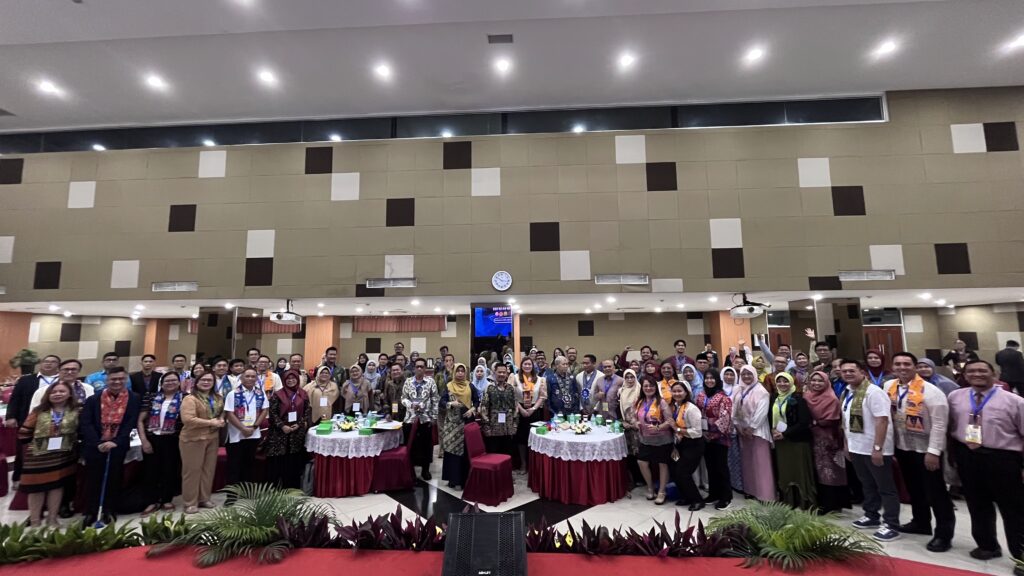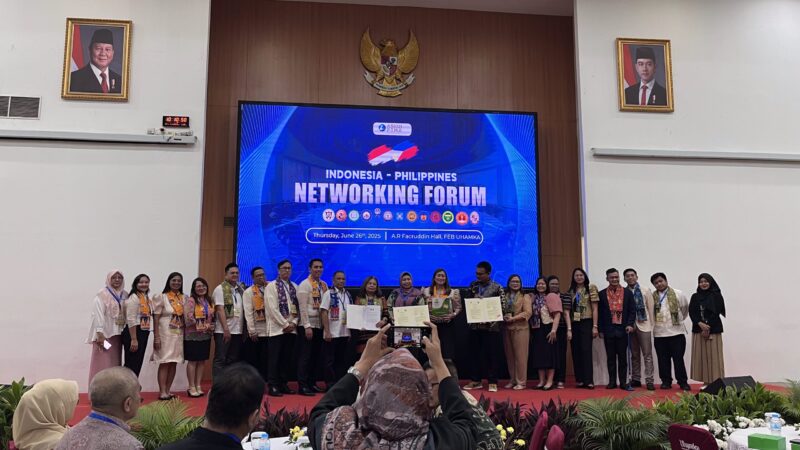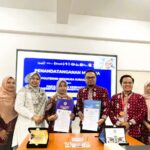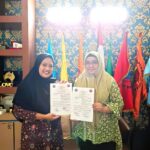lkui.umsida.ac.id – Universitas Muhammadiyah Sidoarjo (UMSIDA) has reaffirmed its commitment to global academic engagement by participating in the Indonesia–Philippines Networking Forum, a strategic platform that brought together Muhammadiyah–’Aisyiyah universities and seven higher education institutions from the Philippines. Held at the Faculty of Economics and Business Auditorium, UHAMKA Jakarta, the forum culminated in the signing of memoranda of understanding (MoUs) aimed at fostering cross-border collaboration in education, research, and community service. (26/06/2025)
This high-level initiative, coordinated by the Association of International Affairs Offices of PTMA (ASKUI PTMA), is part of an ongoing effort to expand Muhammadiyah’s global academic footprint and to position PTMAs as active players in Southeast Asian higher education diplomacy.
During the event, UMSIDA formalized partnerships alongside several other Muhammadiyah-affiliated institutions. The seven universities from the Philippines involved in the agreement include: Pampanga State University, Holy Angel University, Columban College Inc., Jose Rizal University, Angeles University Foundation, Bataan Peninsula State University, and La Consolacion University.

The partnerships open doors for UMSIDA to implement various international mobility initiatives such as student and faculty exchange, joint research programs, international conferences, and intercultural community projects. These efforts are in line with UMSIDA’s broader mission to foster inclusive, globally relevant academic experiences while upholding Muhammadiyah values.
From the partner side, Universitas Muhammadiyah Bengkulu (UMB) highlighted the significance of this initiative as part of its international roadmap. “Starting this year, we will create more pathways for our students to experience cross-cultural learning, through short-term visits or academic exchange schemes. This is part of our commitment to shaping UMB as a globally oriented institution,” said Andi Azhar, Head of UMB’s International Office.
The MoUs signed are not only reciprocal in nature, allowing both inbound and outbound mobility, but are also grounded in sustainable academic cooperation. Philippine partner universities have also committed to sending their students to Indonesia for short programs, community immersion, and collaborative cultural exchanges.
While the ceremony marked the official beginning of these partnerships, the forum also provided space for institutional presentations, panel discussions, and bilateral planning meetings. Each university used the opportunity to showcase their potential and explore action plans to be realized beyond the MoU.
ASKUI PTMA will play an important role in monitoring and evaluating the progress of these partnerships to ensure tangible outcomes and long-term collaboration impact. With its clear focus on implementation, the forum emphasized substance over symbolism.
For UMSIDA, participation in this regional collaboration signifies more than just formal cooperation—it is a vital part of the university’s internationalization strategy. Through this engagement, UMSIDA aims to broaden its academic networks, enrich student experiences, and position itself as a proactive contributor to global higher education.
The event also reflected how PTMAs are emerging as an alternative force in international education diplomacy. By integrating Islamic values with international openness and cooperation, Muhammadiyah universities like UMSIDA demonstrate that global engagement can align with cultural identity and educational excellence.
Source: Suara Muhammadiyah
Editor: LKUI UMSIDA




